Google Maps just got a huge upgrade with Gemini AI — here’s all the new features
Use AI to discover things you can do and places you can explore
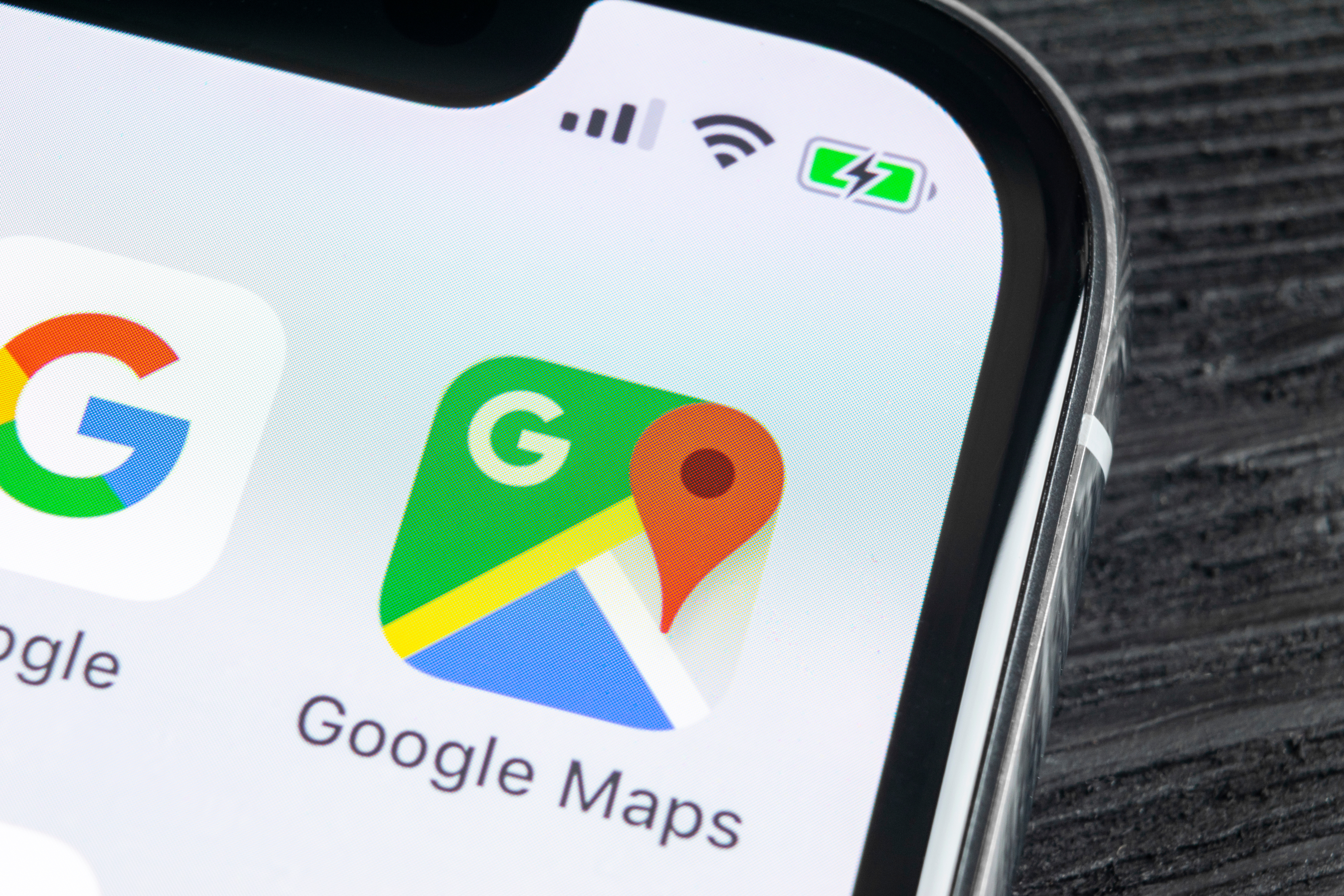
PALO ALTO, Calif. — The next time you hit the road with Google Maps fired up on your phone, Google's Gemini AI model could be riding shotgun. Google's popular navigation app is picking up new features that tap into AI to not only help you get were you're going but to find things worth discovering in the first place.
Gemini's biggest addition to Google Maps is rolling out to the Android and iOS versions of the mapping app right now. It will help generate ideas on where you can go, even producing review summaries and fielding follow-up questions on your destination.
@tomsguide ♬ original sound - Tom’s Guide
But that's the not only change coming to Google Maps, which is also getting more detailed views of your route, easier ways to find stops along the way and alerts about driving hazards triggered by weather conditions. There's also new feature aimed at helping you find places to park and additional guidance to your actual destination once you do park your car.
Here's a rundown of what's coming to Google Maps and when you can expect it.
Google Maps: Gemini along for the ride
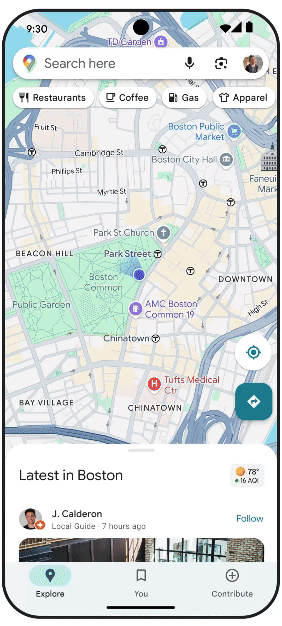
Google Maps is no stranger to AI, which analyzes images and data about businesses and places to keep Google's map up-to-date, to the tune of 100 million updates each day. "In just the time it takes me to say this sentence, we've made 10,000 updates to Maps," said Chris Phillips, vice president and general manager of the Geo portfolio at Google that includes products like Maps, Waze ane Google Earth.
But Gemini's inclusion in Google Maps will be a more direct one with end users. You'll be able to turn to AI model to get suggestions on things happening in whatever area you're search. Or as Miriam Daniel, vice president and general manager of Google Maps, puts it, you're not just able to ask Google "what's near me?" anymore — with Gemini, the question becomes "what can I do?"
The example Daniels gave at a press event announcing new additions to Google Maps involved a friend unexpectedly stopping by as the result of an unplanned layover. To figure out how to spend that night out, Daniels entered a query into Maps asking for "things I can do with a friend at night in Boston." Suggestions produced by Gemini and marked with a "curated by Google" indicator included speakeasies and live music, with information listed for each venue, club or bar that had been recommended.
Sign up to get the BEST of Tom's Guide direct to your inbox.
Get instant access to breaking news, the hottest reviews, great deals and helpful tips.
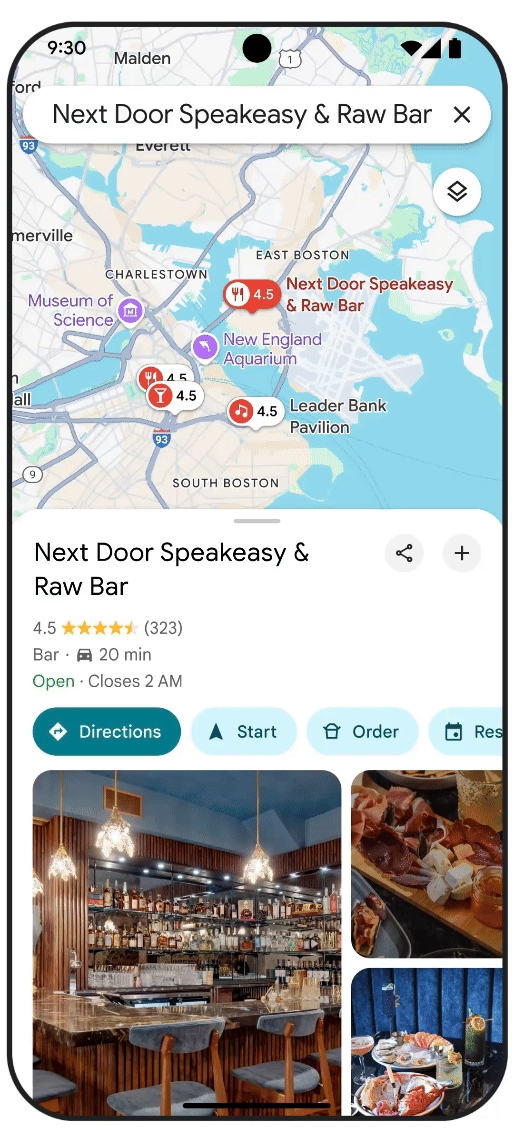
Tap on one of the Gemini suggestions, and you can read a summary of verified user reviews posted to Google Maps that the AI model has put together. Further down the page, you can pose follow-up questions to Gemini like whether the venue is noisy or whether there's a full bar. Gemini comes up with an answer, based on the information Google Maps has collected, plus comments from those reviews.
This new Google Maps feature extends the app's toolset beyond what people typically turn to Maps for, so expect some kind of prompt letting you know you can now search for more than just directions from Point A to Point B. If Google's successful at using its AI model to offer suggestions people can act on, it would make the app even valuable than before.
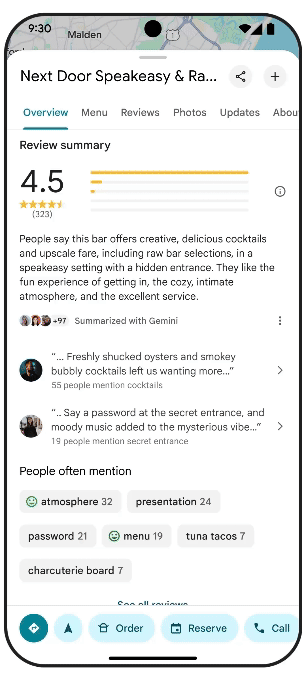
Google says the Gemini integration starts rolling out this week to both iOS and Android versions of Google Maps in the U.S. The company added that there's no time frame on when other countries are set to gain this update, but it seems like it's on track to happen once Google has a chance to fine-tune the feature based on its use among U.S.-based users.
Other Google Maps improvements
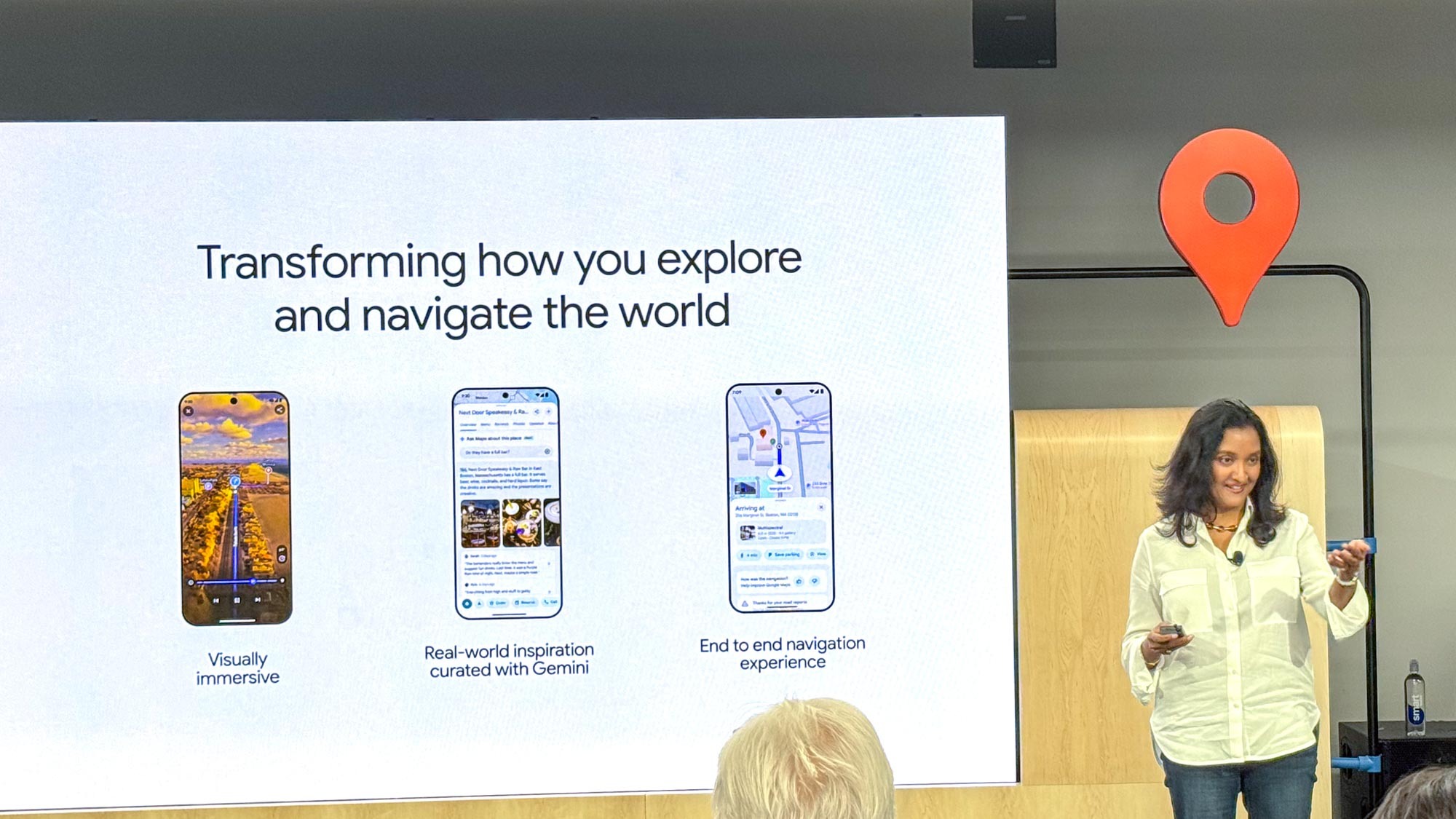
Other changes Google Maps are focused more specifically on navigation, including an easier way to add stops to your route. When you get directions in Google Maps and tap add stops, Google Maps will automatically produce a list of points of interest including landmarks, restaurants and attractions you can then insert into your route. It's a feature aimed not only at improving discovery of new sites in the app but also simplifying the ability to add stops along your way.
Enhanced navigation improvements add more information to the map screen designed to make it easier to find your way around unfamiliar places. Rich details like crosswalks and road signs now appear on the map itself, and the blue line guiding your path will specifically indicate what lane you need to be in to turn, merge or exit.
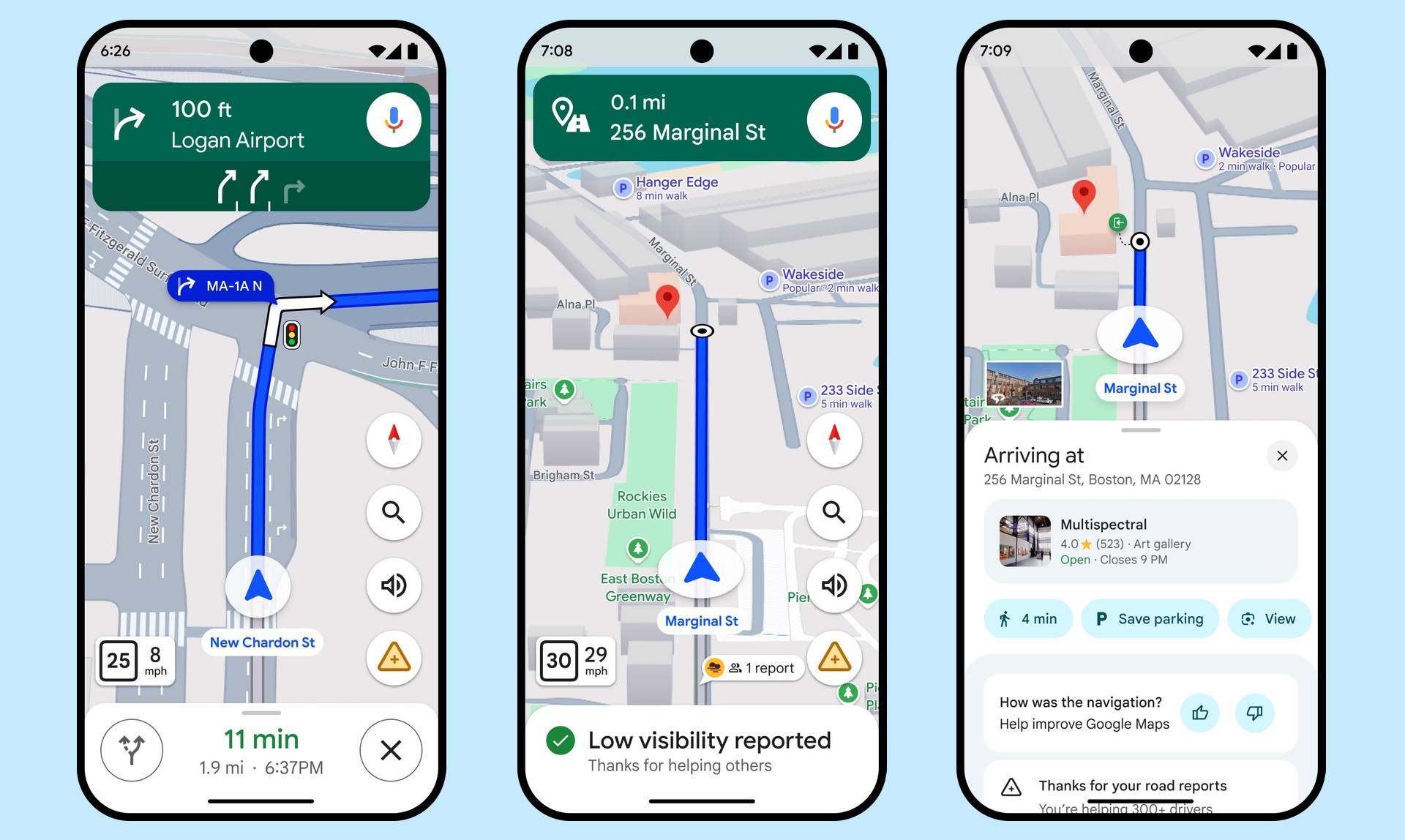
An earlier improvement to Google Maps that let drivers report traffic and other incidents on their route is expanding to include weather issues — thinking flooded roads, low visibility areas due to fog and, with winter coming up in the U.S., unplowed roads.
A final navigation improvements looks to take over when you've arrived at your destination, not only by flagging parking in the immediate area, but by providing walking directors from where you're parked to the destination itself. In street view, the building or place you're headed to will even be highlighted, and Google Maps will now remind you to save your parking location before you head off.
The ability to explore stops along your route, the weather reporting feature and parking and arrival guidance all come to Google Maps this week. The enhanced navigation changes will first appear in 30 U.S. metro areas starting next month, with plans to expand the feature.
Google Maps' Immersive View feature, launched last year as a way to provide a 3D view of your route using both AI and computer vision, is also due for an update. As you may remember, Immersive view not only offers a more realistic view of where you're headed, but can also show expected weather conditions and traffic patters patterns by adjusting the time for when you'll be in a place.
Google plans to extend Immersive View to 150 more cities starting this week. It's also getting navigation details like flagging tricky turns and showing you where to park. Those changes roll out to Android and iOS this week, too.
Thanks to AI, we can give you what you need to know before you go," Phillips said.
Waze updates, and other Google Maps news
Google's Waze app joins Google Maps in adding new features. You'll now be able to report traffic and road hazards with your voice. Even better, Waze will recognize natural speech when you're reporting an incident. You can say "It's bumper to tumper on Interstate 880," and the app will know that you're talking about traffic in your specific location. If the app needs more info, it will ask follow-up questions.
The Android and iOS versions of Waze gain this new Conversational Reporting feature in English, starting this week. The feature is set to expand to other languages and users in the coming months. Meanwhile, in an update coming to Waze later this year, the app will now show school zones along your route.
Developers are getting some tools related to Google's mapping products and AI. In Google Earth, city planners will gain access to Gemini, which should speed up data analysis involving the mapping tool. App makers will be able to tap into the rich place data of the Google Maps platform to add generative AI features to their apps.
More from Tom's Guide
Philip Michaels is a Managing Editor at Tom's Guide. He's been covering personal technology since 1999 and was in the building when Steve Jobs showed off the iPhone for the first time. He's been evaluating smartphones since that first iPhone debuted in 2007, and he's been following phone carriers and smartphone plans since 2015. He has strong opinions about Apple, the Oakland Athletics, old movies and proper butchery techniques. Follow him at @PhilipMichaels.

